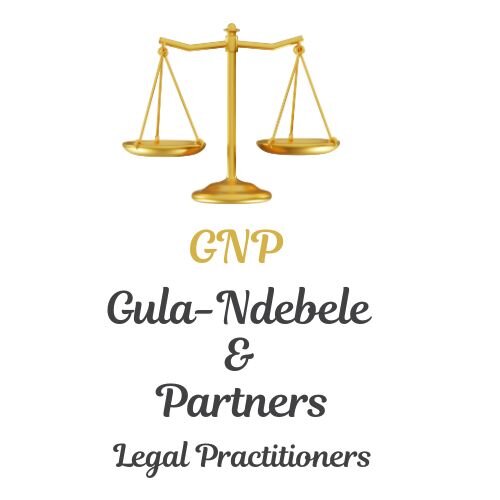Best Private Client Lawyers in Zimbabwe
Share your needs with us, get contacted by law firms.
Free. Takes 2 min.
Or refine your search by selecting a city:
List of the best lawyers in Zimbabwe
About Private Client Law in Zimbabwe
Private Client law in Zimbabwe focuses on assisting individuals and families in managing their personal legal affairs. This area of law covers a wide range of services, including estate and succession planning, drafting of wills, the administration of deceased estates, trusts, guardianships, family business structuring, and tax planning. Private Client law also encompasses matters related to asset protection, power of attorney, and charitable giving. Legal professionals in this field help clients navigate the often complex regulations and processes involved in handling their personal and family matters.
Why You May Need a Lawyer
Individuals may require a Private Client lawyer in Zimbabwe for several reasons. Common situations include the drafting and updating of wills to ensure that assets are distributed according to your wishes and in compliance with Zimbabwean law. Private Client lawyers also assist in establishing and administering trusts for minors or vulnerable dependents, managing deceased estates through the executor role, navigating inheritance disputes between family members, and ensuring tax efficiency in estate and asset transfers. Additionally, if you need to appoint a power of attorney due to illness, incapacity, or overseas travel, or if you are administering or contesting a deceased person's estate, legal guidance is vital. Private Client lawyers offer both preventive advice and support when disputes arise.
Local Laws Overview
Zimbabwe's legal system has specific statutes and procedures that are crucial for Private Client matters. The Wills Act [Chapter 6.06] regulates the making, validity, and execution of wills. When a person dies intestate (without a will), the Administration of Estates Act [Chapter 6.01] guides the division and administration of their assets. Probate and estate administration are managed by the Master of the High Court, and all executorships must be officially registered. Trusts are regulated by the Deeds Registries Act [Chapter 20.05] and the Trust Property Control Act, especially where land and immovable property are involved. Implications of marriage regimes such as community of property or out of community of property impact succession and ownership rights. It is also important to consider the implications of customary law on inheritance and guardianship, especially in rural and communal settings.
Frequently Asked Questions
What is the role of the Master of the High Court in estate administration?
The Master of the High Court supervises the administration of deceased estates, including the appointment of executors, approval of estate accounts, and the resolution of disputes among beneficiaries.
Is it mandatory to have a will in Zimbabwe?
It is not mandatory, but highly recommended. Without a valid will, your estate will be distributed according to the laws of intestacy, which may not reflect your personal wishes.
How can I contest a will in Zimbabwe?
If you believe a will is invalid due to factors like undue influence or incapacity, you may challenge it in the High Court. Legal advice should be sought to evaluate the prospects of success and to follow the correct procedures.
What happens if someone dies without a will?
The estate is administered according to the Administration of Estates Act, which stipulates how assets will be distributed among surviving family members. The order of inheritance is determined by law.
Are foreign wills recognized in Zimbabwe?
Foreign wills can be recognized, but they must comply with Zimbabwean legal formalities and may require translation or judicial recognition. It is best to seek legal guidance on cross-border estate planning.
How do marriage regimes affect inheritance?
Marriage in or out of community of property affects how assets are owned and inherited. In community of property, assets are jointly owned, while out of community of property keeps assets separate. This impacts estate distribution upon death.
What is the process for appointing a guardian for minors?
A guardian for minors can be appointed by will, or in their absence, by the courts or the Master of the High Court. The welfare of the child is the primary consideration in such appointments.
How can trusts be used in estate planning?
Trusts allow assets to be managed for the benefit of specific individuals or purposes, providing flexibility and potential protection from certain liabilities or claims. Legal and tax implications must be carefully considered.
What taxes apply to inheritance in Zimbabwe?
While Zimbabwe does not currently impose estate duty, there may be tax implications for capital gains, income, or transfer of specific assets. It is important to seek professional advice to ensure compliance.
Can beneficiaries residing abroad inherit from a Zimbabwean estate?
Yes, beneficiaries living outside Zimbabwe can inherit, but additional processes for asset transfer and exchange control approval may apply. Legal assistance ensures smooth cross-border transactions.
Additional Resources
Individuals seeking legal advice in Private Client matters in Zimbabwe can contact several governmental bodies and organizations for support. The Master of the High Court oversees deceased estate matters and can provide procedural guidelines. The Deeds Registry is responsible for property and trust registration. The Law Society of Zimbabwe can refer clients to qualified legal practitioners specializing in Private Client law. Non-governmental organizations such as Legal Resources Foundation and Justice for Children Trust provide practical support in inheritance, guardianship, and other family-related legal matters. For advice on taxation, the Zimbabwe Revenue Authority (ZIMRA) is the relevant authority.
Next Steps
If you require legal assistance with a Private Client matter in Zimbabwe, start by understanding the specific issue and gathering relevant documentation such as identification documents, title deeds, and any existing wills or trust instruments. Seek out a registered legal practitioner with expertise in Private Client law, preferably through the Law Society of Zimbabwe. Schedule a consultation to discuss your needs and receive tailored advice. For estate matters, notify the Master of the High Court to initiate official procedures. Remember, having clear and updated legal documents can prevent lengthy disputes and provide peace of mind for you and your loved ones.
Lawzana helps you find the best lawyers and law firms in Zimbabwe through a curated and pre-screened list of qualified legal professionals. Our platform offers rankings and detailed profiles of attorneys and law firms, allowing you to compare based on practice areas, including Private Client, experience, and client feedback.
Each profile includes a description of the firm's areas of practice, client reviews, team members and partners, year of establishment, spoken languages, office locations, contact information, social media presence, and any published articles or resources. Most firms on our platform speak English and are experienced in both local and international legal matters.
Get a quote from top-rated law firms in Zimbabwe — quickly, securely, and without unnecessary hassle.
Disclaimer:
The information provided on this page is for general informational purposes only and does not constitute legal advice. While we strive to ensure the accuracy and relevance of the content, legal information may change over time, and interpretations of the law can vary. You should always consult with a qualified legal professional for advice specific to your situation.
We disclaim all liability for actions taken or not taken based on the content of this page. If you believe any information is incorrect or outdated, please contact us, and we will review and update it where appropriate.
Browse private client law firms by service in Zimbabwe
Zimbabwe Attorneys in related practice areas.
Browse private client law firms by city in Zimbabwe
Refine your search by selecting a city.
















